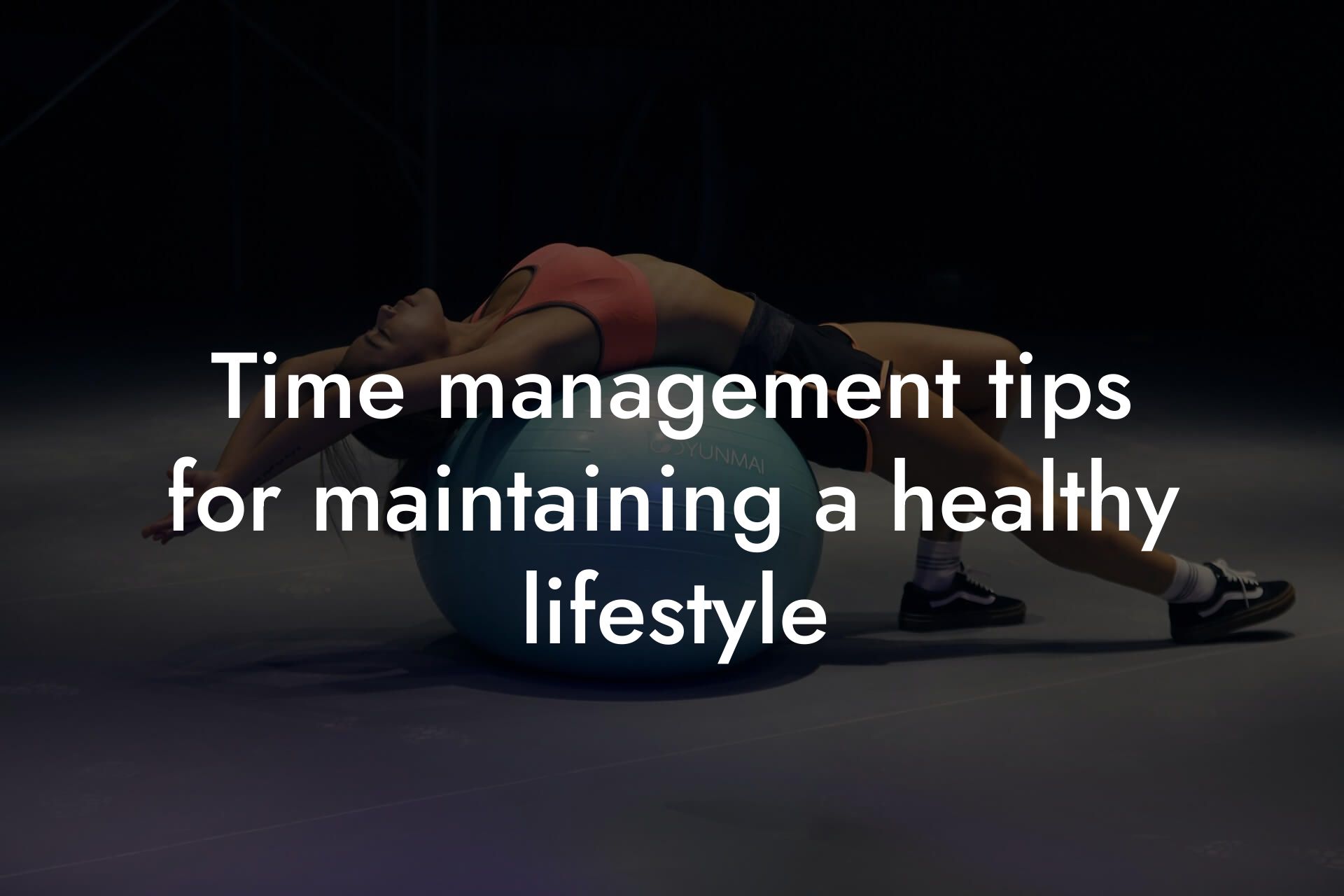As a high-earning professional, you're no stranger to the pressures of the corporate world. Long hours, tight deadlines, and high expectations can take a toll on your mental and physical well-being. Work stress, in particular, can have far-reaching consequences on your overall health, affecting not only your productivity but also your physical appearance, body fat, physique, and bone density. In this article, we'll delve into the world of work stress, its impact on physical health, and provide you with practical tips on how to manage it effectively.
Table of Contents
The Consequences of Chronic Work Stress
Chronic work stress can lead to a range of physical health problems, including:
- Cardiovascular disease: High blood pressure, heart palpitations, and increased risk of heart attacks and strokes.
- Digestive issues: Irritable bowel syndrome, acid reflux, and stomach ulcers.
- Immune system suppression: Weakened immune system, making you more susceptible to illnesses.
- Sleep disturbances: Insomnia, fatigue, and mood disorders.
- Weight gain and loss: Fluctuations in body fat, leading to changes in physique and bone density.
The Physiological Response to Stress
When you're stressed, your body's "fight or flight" response is triggered, releasing hormones like cortisol and adrenaline. These hormones prepare your body to respond to the perceived threat, but they also have a profound impact on your physical health. Chronically elevated cortisol levels can:
- Break down muscle tissue and bone density.
- Increase belly fat and insulin resistance.
- Disrupt hormonal balances, leading to skin issues, hair loss, and mood swings.
Identifying the Sources of Work Stress
To manage work stress effectively, it's essential to identify its sources. Common culprits include:
- Unrealistic deadlines and workload.
- Lack of control over work environment and tasks.
- Poor communication and conflict with colleagues or management.
- Fear of job insecurity or uncertainty.
- Long commutes and work-life imbalance.
Strategies for Managing Work Stress
Now that we've explored the consequences and sources of work stress, it's time to discuss effective strategies for managing it:
- Prioritize self-care: Engage in regular exercise, meditation, and relaxation techniques to reduce cortisol levels and improve mood.
- Set boundaries: Establish clear limits with colleagues, management, and clients to maintain a healthy work-life balance.
- Seek support: Build a network of colleagues, friends, and family members who can offer emotional support and guidance.
- Re-evaluate priorities: Focus on high-impact tasks, delegate when possible, and learn to say "no" to non-essential commitments.
- Take breaks: Regularly take short breaks to stretch, move, and rest your eyes.
The Role of Nutrition in Managing Work Stress
A well-balanced diet plays a critical role in managing work stress. Focus on consuming:
- Omega-3 rich foods: Fatty fish, nuts, and seeds to reduce inflammation and improve mood.
- Complex carbohydrates: Whole grains, fruits, and vegetables to stabilize blood sugar levels and energy.
- Lean protein sources: Poultry, fish, and legumes to support muscle health and satiety.
- Healthy fats: Avocados, olive oil, and nuts to support hormone production and brain function.
The Importance of Sleep and Relaxation
Sufficient sleep and relaxation are crucial for managing work stress. Aim for:
- 7-9 hours of sleep per night to help regulate hormones and repair muscle tissue.
- Regular relaxation techniques: Yoga, meditation, and deep breathing exercises to reduce cortisol levels and improve mood.
Monitoring Your Progress with DEXA Scans
As a high-earning professional, you understand the importance of tracking your progress and making data-driven decisions. At Tano Performance Group, we offer comprehensive DEXA scans to provide you with a complete body assessment. Our scans measure:
- Body fat percentage and distribution.
- Bone density and muscle mass.
- Physique and body composition.
By monitoring your progress with regular DEXA scans, you can adjust your stress management strategies, nutrition, and exercise routine to optimize your physical health and performance.
Work stress is a common phenomenon that can have far-reaching consequences on your physical health. By understanding the sources of stress, implementing effective management strategies, and prioritizing nutrition, sleep, and relaxation, you can mitigate its impact and optimize your overall well-being. Remember, taking care of your physical health is essential to achieving success in your professional life. At Tano Performance Group, we're committed to helping you achieve your goals and reach new heights of performance.
Frequently Asked Questions
What is work stress, and how does it affect me?
Work stress is a common experience that can occur when the demands of your job exceed your ability to cope with them. It can lead to feelings of anxiety, frustration, and burnout, which can negatively impact your physical and mental health. As a high-earning professional, you may be more susceptible to work stress due to the pressure to perform and meet expectations.
How does work stress impact my physical health?
Chronic work stress can lead to a range of physical health problems, including headaches, muscle tension, cardiovascular disease, and a weakened immune system. It can also exacerbate existing health conditions, such as diabetes, hypertension, and gastrointestinal issues. Additionally, work stress can disrupt your sleep patterns, leading to fatigue, mood disturbances, and decreased productivity.
What are the common signs of work stress?
Common signs of work stress include feelings of anxiety, irritability, and mood swings. You may also experience physical symptoms such as headaches, neck and back pain, and stomach problems. Other signs include difficulty concentrating, memory lapses, and a lack of motivation. If you're experiencing several of these symptoms, it may be a sign that you're experiencing work stress.
How can I identify the sources of my work stress?
To identify the sources of your work stress, take some time to reflect on your job and work environment. Ask yourself questions like: What are the most challenging aspects of my job? What tasks or responsibilities make me feel anxious or overwhelmed? Are there any conflicts or issues with colleagues or management? Are there any unrealistic expectations or deadlines that I'm struggling to meet? Identifying the sources of your work stress is the first step in developing strategies to manage it.
What are some effective strategies for managing work stress?
Effective strategies for managing work stress include prioritizing tasks, setting realistic goals, and taking regular breaks. You can also try relaxation techniques such as deep breathing, meditation, or yoga to help reduce stress and anxiety. Additionally, building a support network of colleagues, friends, and family can help you feel more connected and less isolated. Finally, learning to say "no" to non-essential tasks and setting healthy boundaries can help you maintain a better work-life balance.
How can I prioritize my tasks and manage my workload?
To prioritize your tasks and manage your workload, start by making a list of all your tasks and responsibilities. Then, categorize them based on their urgency and importance. Focus on completing the high-priority tasks first, and break them down into smaller, manageable chunks. Don't be afraid to delegate tasks to colleagues or subordinates if possible, and learn to say "no" to non-essential tasks that can drain your time and energy.
What are some relaxation techniques that can help reduce work stress?
Relaxation techniques such as deep breathing, progressive muscle relaxation, and meditation can help reduce work stress and anxiety. These techniques can help calm your mind and body, reducing feelings of tension and overwhelm. You can find guided relaxation exercises online or through mobile apps, or try incorporating physical activities like yoga or tai chi into your daily routine.
How can I build a support network to help manage work stress?
Building a support network can help you feel more connected and less isolated, which can be especially important when dealing with work stress. Start by identifying colleagues, friends, and family members who can offer emotional support and guidance. You can also consider joining a professional organization or networking group to connect with others in your industry. Don't be afraid to reach out to a mental health professional if you need additional support.
What are some healthy ways to cope with work stress?
Healthy ways to cope with work stress include exercise, mindfulness, and creative pursuits. Regular exercise can help reduce stress and anxiety, while mindfulness practices such as meditation and deep breathing can help calm your mind and body. Creative pursuits like painting, writing, or photography can provide an outlet for emotions and help you feel more fulfilled.
How can I maintain a healthy work-life balance?
Maintaining a healthy work-life balance is essential for managing work stress. Start by setting clear boundaries between your work and personal life. Establish a routine that allows for time with family and friends, as well as time for self-care and relaxation. Learn to say "no" to work-related tasks that encroach on your personal time, and prioritize activities that bring you joy and fulfillment.
What are some signs that I need to take a break from work?
Signs that you need to take a break from work include feelings of burnout, exhaustion, and demotivation. You may also experience physical symptoms such as headaches, muscle tension, and fatigue. If you're finding it difficult to concentrate, making mistakes, or feeling disconnected from your work, it may be time to take a break and recharge.
How can I take a break from work without feeling guilty?
Taking a break from work without feeling guilty requires a mindset shift. Instead of viewing breaks as a luxury or indulgence, see them as a necessary investment in your physical and mental health. Remember that taking breaks can actually improve your productivity and focus when you return to work. Try to schedule breaks into your day or week, and use that time to do something that brings you joy and relaxation.
What are some common myths about work stress?
Common myths about work stress include the idea that it's a sign of weakness, or that it's something that only affects certain types of people. Another myth is that work stress is inevitable and can't be managed. The reality is that work stress can affect anyone, regardless of their profession or personality. It's also important to recognize that work stress is a common experience that can be managed with the right strategies and support.
How can I talk to my manager about my work stress?
Talking to your manager about your work stress can be challenging, but it's an important step in finding solutions. Start by scheduling a meeting with your manager and preparing a clear and concise explanation of your work stress and its impact on your well-being. Be specific about the sources of your stress and the strategies you've tried so far. Work together with your manager to identify potential solutions, such as delegating tasks, adjusting deadlines, or providing additional support.
What are some resources available to help me manage work stress?
There are many resources available to help you manage work stress, including employee assistance programs (EAPs), mental health professionals, and online resources. You can also turn to colleagues, friends, and family members for emotional support and guidance. Don't be afraid to reach out for help – managing work stress is a sign of strength, not weakness.
How can I prioritize my physical health when I'm experiencing work stress?
Prioritizing your physical health when experiencing work stress is crucial. Start by getting enough sleep, eating a balanced diet, and engaging in regular exercise. You can also try relaxation techniques such as deep breathing, meditation, or yoga to help reduce stress and anxiety. Don't neglect your physical health – it's essential for managing work stress and maintaining overall well-being.
What are some common physical health problems associated with work stress?
Common physical health problems associated with work stress include headaches, muscle tension, cardiovascular disease, and a weakened immune system. Work stress can also exacerbate existing health conditions, such as diabetes, hypertension, and gastrointestinal issues. Additionally, work stress can disrupt your sleep patterns, leading to fatigue, mood disturbances, and decreased productivity.
How can I maintain my physical appearance and physique when experiencing work stress?
Maintaining your physical appearance and physique when experiencing work stress requires a focus on self-care and healthy habits. Prioritize exercise, eat a balanced diet, and get enough sleep. You can also try relaxation techniques such as meditation or deep breathing to help reduce stress and anxiety. Don't neglect your physical health – it's essential for managing work stress and maintaining overall well-being.
What are some tips for maintaining bone density when experiencing work stress?
Maintaining bone density when experiencing work stress requires a focus on calcium-rich foods, vitamin D, and regular exercise. You can also try relaxation techniques such as meditation or deep breathing to help reduce stress and anxiety. Additionally, prioritize sleep and avoid smoking and excessive alcohol consumption, which can negatively impact bone density.
How can I prioritize my body fat percentage when experiencing work stress?
Prioritizing your body fat percentage when experiencing work stress requires a focus on healthy habits, including a balanced diet and regular exercise. You can also try relaxation techniques such as meditation or deep breathing to help reduce stress and anxiety. Don't neglect your physical health – it's essential for managing work stress and maintaining overall well-being.
What are some common mistakes people make when trying to manage work stress?
Common mistakes people make when trying to manage work stress include neglecting self-care, prioritizing work over personal life, and failing to set boundaries. Others may turn to unhealthy coping mechanisms, such as substance abuse or overeating, or fail to seek support from colleagues, friends, or mental health professionals. Remember that managing work stress requires a holistic approach that prioritizes physical and mental health.
How can I maintain my productivity when experiencing work stress?
Maintaining productivity when experiencing work stress requires a focus on prioritization, delegation, and time management. Start by identifying the most critical tasks and breaking them down into smaller, manageable chunks. Learn to say "no" to non-essential tasks and delegate when possible. Take regular breaks to recharge and avoid burnout.
What are some long-term effects of chronic work stress?
The long-term effects of chronic work stress can be severe and far-reaching. They can include cardiovascular disease, hypertension, diabetes, and a weakened immune system. Chronic work stress can also lead to mental health problems, such as anxiety and depression, and can negatively impact relationships and overall well-being. It's essential to manage work stress proactively to avoid these long-term effects.
Here are some related articles you might love...
- Creating a daily routine for optimal health
- Social support and its role in achieving fitness goals
- Time management tips for maintaining a healthy lifestyle
- Balancing indulgence and discipline in diet and fitness
- The role of sleep in achieving body composition goals
- Travel tips for maintaining your physique
- The importance of regular health check-ups
- How to integrate fitness into a demanding work schedule
- Healthy habits that support long-term success
Zak Faulkner
Zak Faulkner is a leading authority in the realm of physical health and body composition analysis, with over 15 years of experience helping professionals optimise their fitness and well-being. As one the experts behind Tano Performance Group, Zak has dedicated his career to providing in-depth, science-backed insights that empower clients to elevate their physical performance and overall health.
With extensive knowledge of DEXA technology, Zak specializes in delivering comprehensive body assessments that offer precise data on body fat, muscle mass, bone density, and overall physique. His expertise enables individuals to make informed decisions and achieve their fitness goals with accuracy and confidence. Zak’s approach is rooted in a deep understanding of human physiology, combined with a passion for helping clients unlock their full potential through personalised strategies.
Over the years, Zak has earned a reputation for his commitment to excellence, precision, and client-focused service. His guidance is trusted by top professionals who demand the best when it comes to their health. Whether advising on fitness programs, nutritional strategies, or long-term wellness plans, Zak Faulkner’s insights are a valuable resource for anyone serious about taking their health and fitness to the next level.
At Tano Performance Group, Zak continues to lead our Content Team revolutionising how professionals approach their physical health, offering unparalleled expertise that drives real results.




